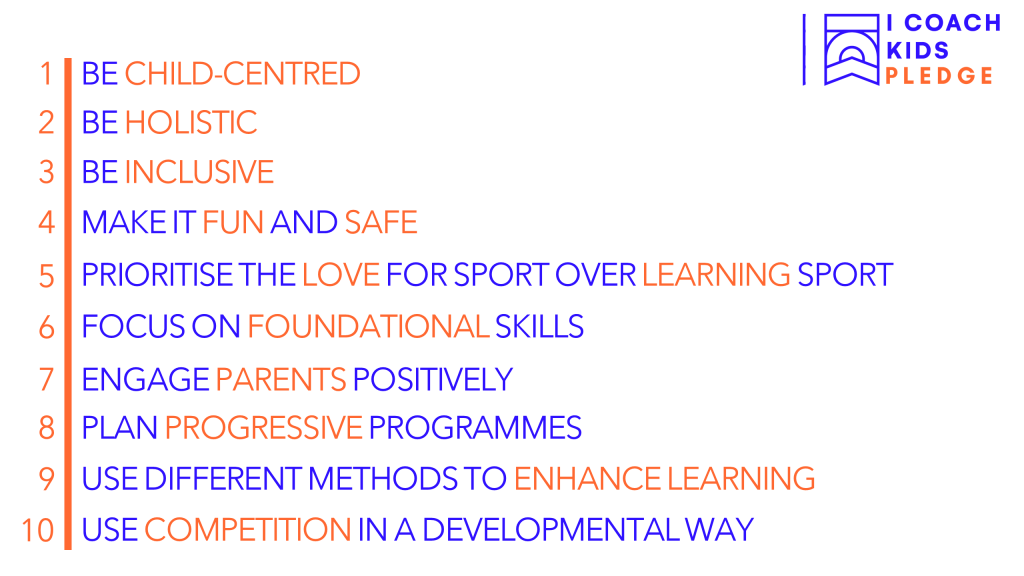In this webinar, we were fortunate to be joined by international youth coach expert Dr Sergio Lara-Bercial. We heard from Sergio about the current international climate for youth sport; where to start with addressing some of the issues in youth sport; and how coaches of young people can create positive sport environments.
Click here for an overview of the iCoachKids Pledge
Webinar outline
00:00 – Introduction from Andy Rogers, Sport New Zealand
03:21 – About Dr Sergio Lara-Bercial
08:51 – Webinar overview
10:15 – Is sport good for kids?
11:33 – What is the current picture of youth sport globally?
15:56 – Where do we start with addressing the issues in youth sport?
18:13 – Who is iCoachKids?
20:08 – iCoachKids Pledge – 10 Golden Rules for Positive Experiences
27:03 – Discussion about using competition in a developmental way
32:45 – Discussion of using different coaching methods to enhance learning
37:33 – How iCoachKids can help coaches?
40:29 – Introducing the iCoachKids & Sport NZ partnership
Key takeaways from the webinar

Read about the iCoachKids Pledge here
Sergio on how coaches can use competition in a developmentally appropriate way.
- Coaches should not aim to replicate the adult form of the competition until it is appropriate for the age and stage of the young person. Instead, coaches should think about what elements of the adult form of competition is appropriate to use for a young person based on their age and stage of development.
- Competition does not mean you have to play against someone else. Competition can be internal where you are competing against yourself. An example of competition where internal competition is used are festivals and skill challenges.
- Competition incentives and disincentives not just the behaviour of young people, but other adults involved in the youth sport experience. For example, when club teams come together, mixing the teams up removes some of the playing for my club’ pressure you see underpinning negative or unhelpful behaviours from parents and coaches.
- Ultimately, coaches (and sport leaders) should strive to create multiple avenues of competition so that young people can compete at their desired level. Competition comes in many forms – not just team x v team y. Adults need to be weary that they do not sacrifice the young person’s enjoyment in the pursuit of winning competition.
Sergio on how coaches can use different learning methods to enhance learning.
- Sergio positioned himself as a games-based coach that used drills when necessary. That is, he coached the game through games as much as possible. However, he recognised at times the development of certain skills may require more traditional drills.
- When you do need to use drills try to ‘disguise’ the drill as something that is a lot more fun. Try to make them look and feel like they are not a drill.
- Other than drills and games, coaches should also consider other forms of learning. For example, self-learning – how do you encourage your athletes to understand their own needs and drive their own learning and development? Likewise, how can you help your athletes to help each other work?
- Ultimately, coaches need to think about how they will use the right learning tool, for the right skill, for the right child at the right stage of development.
Read about the iCoachKids Pledge here
More resources from iCoachKids
The iCoachKids Literature Review










